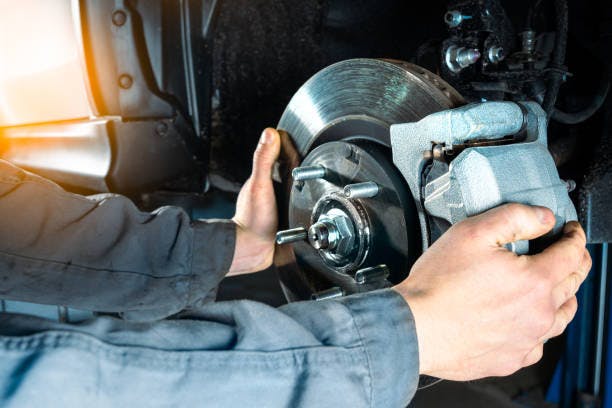
Your Brakes & Rotors are Trying to Tell You Something.
When it comes to the safety and performance of your vehicle, the brakes and rotors play a crucial role. Over time, these parts will inevitably wear down and need to be replaced. But how do you know when it’s time to replace your brakes and rotors?
One of the most obvious signs that your brakes need to be replaced is if you hear a squealing or grinding noise when you press on the brake pedal. This noise is caused by the brake pads wearing down to the point where the metal of the rotor is exposed. If you hear this noise, it’s important to have your brakes checked as soon as possible, as continuing to drive with worn brakes can damage the rotors and lead to a more costly repair.
Another sign that your brakes need to be replaced is if the brake pedal feels spongy or unresponsive when you press on it. This can be caused by worn brake pads or air in the brake lines. If you notice this issue, it’s important to have your brakes checked by a professional as soon as possible.
If you notice that your vehicle is taking longer to stop than usual or if your vehicle is pulling to one side when braking, these could also be signs that your brakes or rotors need to be replaced.
Another way to know that it’s time to replace your brakes and rotors is by the mileage of your car. The average lifespan of brake pads is around 25,000 to 35,000 miles, depending on your driving habits and the type of brake pads you have. The average lifespan of rotors is around 50,000 to 70,000 miles, but it can also vary depending on your driving habits, the type of rotors you have and the environment where you drive.
In summary, it’s important to pay attention to the signs that your brakes and rotors need to be replaced, including squealing or grinding noises, a spongy or unresponsive brake pedal, longer stopping distances, pulling to one side, and mileage. Be sure to have your brakes and rotors checked by a professional if you notice any of these issues. Regular maintenance and check-ups are important to ensure the safety and performance of your vehicle. Click here to schedule an appointment today!

